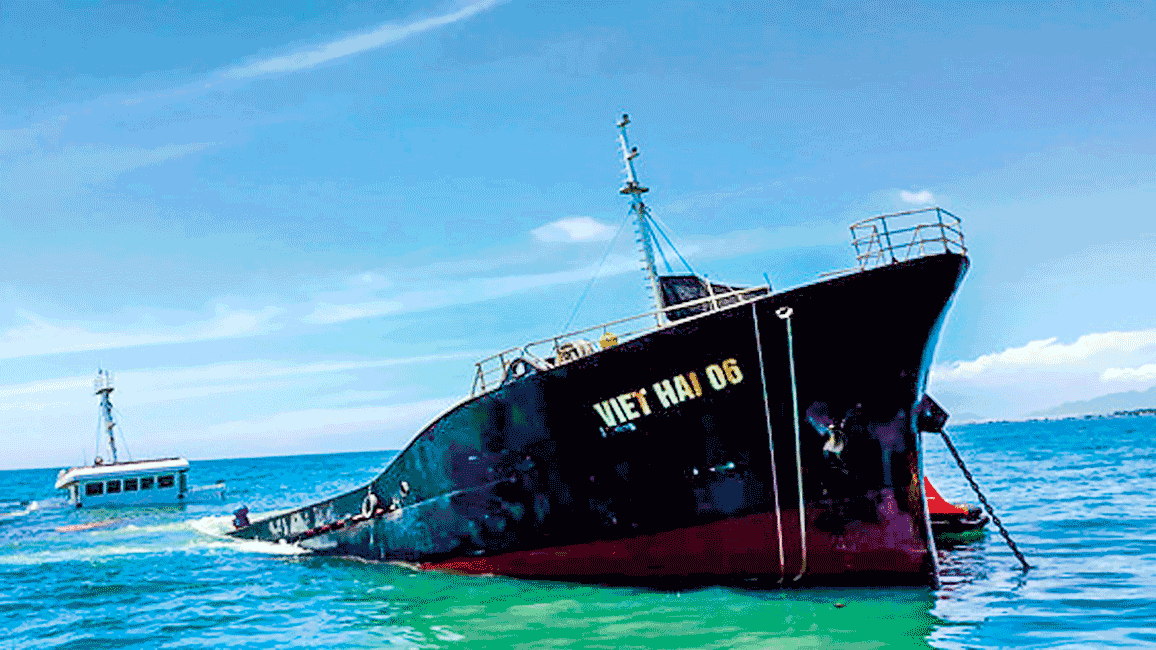
Earlier impressive trading
VSP got on HNX in the trading session on 25 December 2006, closing at VND 70,000 per share. During its hot growth wave on the stock market in 2007, VSP reached a historical peak of VND 315,000 per share. However, the most impressive increase for VSP occurred during the time the stock market adjusted in 2008. From 11 June 2008 to 26 August 2008, it saw an increase from VND 34,900 per share to VND 237,700 per share, an increase of 581%.
This was the most glorious time for VSP and it became a major state-owned corporation, whose profit after tax had grown significantly since 2006. For example, in the first six months of 2008, business results were at VND 203 billion, fifty times higher than in the same period in 2007. At that time, VSP was a listed company with the highest Earning Per Share (EPS) on the stock market with VND 18,000 per share. With this impressive business result, VSP became the most attractive stock code on the stock market.
The attraction for VSP was also reflected in its ability to mobilize more capital than any large enterprises. In early 2008, VSP easily mobilized VND 1,200 bn (ten times the equity at end of 2007) from issuing shares to existing shareholders and strategic partners.
One of the investors who invested a large amount of capital in VSP in this issuance was the IPA Group. VSP invested this new capital in procuring new ships and investing in non-core sectors such as real estate.
Sudden collapse
However, at its glorious peak, VSP suddenly announced business results with negative profits of VND 58.1 bn in Q4/2008. According to the Board of Directors, the cause of the losses was attributed to bad subsidiary business results caused by impact of the global economic downturn.
Since the beginning of the world economic crisis in 2008, the world shipping industry has continued to remain in crisis, where supply is greater than demand, and the dry cargo freight index (BDI) has remained very low. At its peak, the BDI reached 11,700 points, but now fluctuates around 1,000 points, sometimes falling to 400-500 points.
For example, during the most difficult shipping phase in 2016, the transport fee of coal from Indonesia to Vietnam was USD 5-6 per ton, but in 2018 it increased to USD 9 per ton, and now it is only USD 6 per ton. Cement products fee from Vietnam to Philippines was USD 12 per ton in 2016, and USD 17 per ton in 2018, but now it is only USD 11 per ton.
This situation caused several problems for the shipping industry, including in ship chartering. For example, the price of renting three ships of more than sixty thousand tonnages from VSP decreased from USD 85,000 per day in May 2008 to about USD 30,000 per day at end of 2008. The Q4/2008 business results were considered a sign showing a downward journey for VSP in the years following.
At the end of March 2016, VSP Board of Directors announced their decision to suspend operations after more than five years of unsuccessful results. The reason was negative financial consequences that were only deteriorating by the day with operations becoming increasingly thin and gradually lacking cooperation and coordination in handling company restructuring. Depressed with this difficult scenario, many members on the Board of Directors issued a written waiver and resigned in 2015.
Ghost Ship
At the beginning of 2012, faced with the possibility of compulsory delisting due to losses for three consecutive years, VSP leaders actively planned to cancel listing on HNX and switch to UPCoM trading. From a beloved stock with alias of “King on HNX” with price upto VND 315,000 per share, this stock traded at only VND 1,800 per share by the time of delisting.
On 6 July 2012, VSP was listed again on UPCoM with reference price of VND 2,000 per share. The glorious past on the HNX helped VSP to prosper in sessions on UPCoM and at one point it surged beyond VND 4,000 per share, an increase of 100%.
However, after a brief period of increase a chain of transactions saw decrease, and at one time this stock fell to only VND 600 per share.
With VSP now in warning group of HNX, many investors have even compared this stock code to a "ghost ship" with huge debts and haphazard plans. Specifically, at the 2013 annual shareholders meeting, the Board of Directors suddenly announced the business plan with shocking figures.
Accordingly, they expected revenue at VND 1,950 bn, pre-tax profit of VND 1,810 bn, and profit/net revenue ratio approximately 93%. By the end of 2013, accumulated losses of VPS amounted to VND 3,200 bn, negative equity of more than VND 1,800 bn, while total liabilities were up to VND 2,700 bn.
Then, on 6 April 2016, VSP officially cancelled listing on UPCoM, ending the reign of a “King” that once stormed the stock market.




















